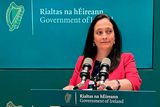Suspending vaccine is the right decision for all concerned
Stock image
The news of the temporary suspension of Covid-19 vaccinations for people who were due to get the AstraZeneca jab has come as a bombshell. It compounds other difficulties facing the struggling roll-out of the vaccination campaign against the virus.
But even a passing glance at the realities of this situation will show that the relevant authority – the National Immunisation Advisory Committee (NIAC) – had few other choices. The use of the well-regarded AstraZeneca vaccination has been temporarily deferred, pending further checks about a potential link to clotting for those vaccinated.
The authorities have been rightly keen to stress that there is no evidence of such a link. They have also correctly pointed out that the vaccine has been lauded for the relative ease of its administration and early indications on its effectiveness.
But they are acting on evidence delivered to them by the health authorities in Norway on Saturday evening. This followed on from alerts in Denmark – one of the EU’s “vaccine stars” – Austria and elsewhere. These are among countries which have temporarily suspended use of the AstraZeneca jab.
But the Irish health authorities are acting on the “precautionary principle” which must apply here. They are obliged to protect human health and put that principle first.
They also have a very strong obligation to defend the reputation and integrity of the entire vaccination process. Faith in the Covid-19 vaccines is stronger in Ireland than elsewhere in the European Union. But it would be easier to damage that confidence than it would be to rebuild it.
Read more
We also note that the plan this week for Ireland was to vaccinate people who were most vulnerable to Covid-19 due to underlying health conditions. This reality redoubled the need for a very cautious approach, further making this decision inevitable.
Some opponents of vaccination will be happy to seize upon this occurrence to further their case in undermining the national campaign. But the majority of people will see this precautionary action as a further indication that the health authorities are applying the greatest of care. If anything, it should enhance people’s faith in the vaccination campaign and its potential to release us from Covid restrictions sooner rather than later.
The company itself, AstraZeneca, has also pointed out that its own clinical trials showed no evidence of clotting as a credible side-effect threat. They reasonably suggest that such low numbers of clotting cases may have occurred anyway, irrespective of vaccines being given to the people involved.
But we must await further scrutiny of data by the relevant health authorities in each of the countries involved. We must also await reports from the over-arching European Medicines Agency. We trust they can act as swiftly as possible given the urgency of the entire vaccination project.
The precautionary principle is the wisest option. In suspending the AstraZeneca vaccine, the authorities are performing their duty to defend human health. They are also defending the public’s fragile confidence in the vaccination programme.
Join the Irish Independent WhatsApp channel
Stay up to date with all the latest news














